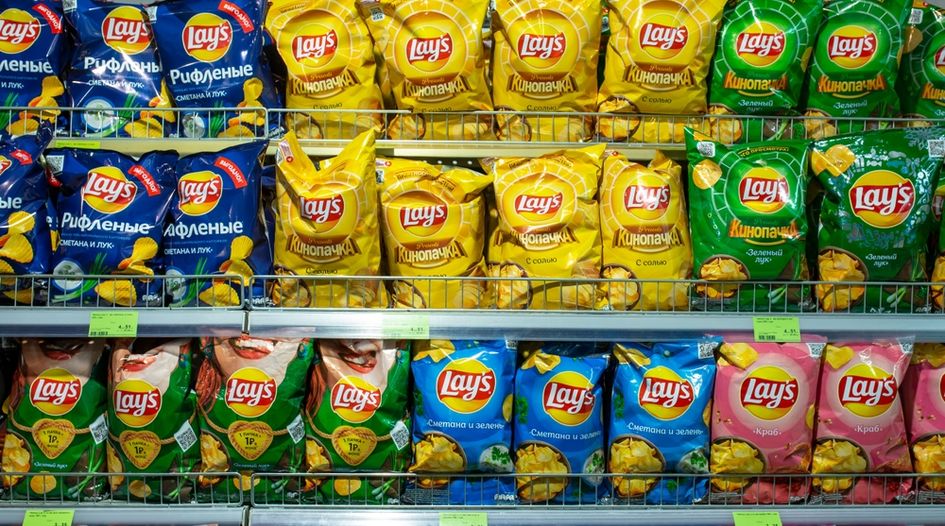PepsiCo’s potato variety loses protection following Delhi High Court ruling

Currently in the limelight in India is the importance of procedural compliance during prosecution under the Protection of Plant Variety and Farmers Rights Act 2001. On 5 July 2023 the Delhi High Court dismissed an appeal filed by PepsiCo India Holdings that challenged the Protection of Plant Varieties and Farmers' Rights Authority’s revocation order against a protection certificate granted for a potato variety (PepsiCo India Holdings Pvt Ltd v Kavitha Kuruganti CA(COMM.IPD-PV) 2/2022).
PepsiCo makes a registration error
PepsiCo had applied for and obtained registration of a plant variety – FL-2027 – in India. FL-2027 is a chipping potato variety with low external defects, high dry matter/solid content and stable sugars, all of which make it highly suitable for being turned into crisps. However, during the prosecution of FL-2027, PepsiCo mistakenly applied for its registration under the “new variety” category instead of “extant variety”. In addition, PepsiCo incorrectly stated that the first commercialisation of the variety took place in India in 2009, when it had actually been first commercialised in Chile in 2002. Regardless, the registrar proceeded to register FL-2027 as an extant variety in February 2016.
The respondent – Kavitha Kuruganti – filed an application under Section 34 of the act before the Plant Variety Authority on 14 June 2019, seeking revocation of the FL-2027 registration. The authority revoked the registration on the following grounds:
- incorrect and ambiguous information with respect to FL2027 being a new variety, as well as the date of the first sale;
- inaccurate and inadequate information with regard to the complete chain of assignment of rights to PepsiCo; and
- the certificate’s grant was not in the public interest.
PepsiCo appealed to the Delhi High Court, challenging the revocation order.
Delhi High Court rules against PepsiCo
To adjudicate the matter, the court outlined and decided several issues.
Is the incorrect information that PepsiCo provided a viable ground for revocation?
The court held that a new variety should satisfy the criteria of novelty, distinctiveness and uniformity and stability, whereas an extant variety should cover distinctiveness, uniformity and stability. PepsiCo had incorrectly referenced FL-2027 as a new variety on account of a clerical error, which went unnoticed by the registrar who granted registration in the correct category.
However, the court held that providing the date of the first sale is crucial information for the application. An extant variety is not granted registration if, on the application date, 15 years have passed since the date of first sale. The court held that the onus of providing the correct information was on PepsiCo, and could not be shifted onto the authority. Thus, the revocation of the registration based on incorrect information was upheld.
Consequences of failing to provide necessary documents
While applying for registration of a plant variety by virtue of assignment of a right, the necessary documentary proof must be submitted in form PV-2 at the time of filing, or within six months from the application date.
According to the court, PepsiCo failed to provide the registrar with such documentation, and instead filed a blank form PV-2 without any signatures or assignee of the breeder. Moreover, the evidence that PepsiCo relied on, which was filed after the registration was granted, did not comply with the provisions of the act. Therefore, PepsiCo’s application was found to not be in conformity with the act, the rules or regulations.
The court further opined that at each stage of the proceedings, PepsiCo had tried to remove deficiencies to avoid facing the consequences of its own mistakes, which demonstrated a casual attitude towards filing a registration application. The court also expressed its displeasure with the registrar for having callously granted the registration without insisting that PepsiCo comply with statutory requirements.
Finally, the court held that even if PepsiCo’s filing of related litigations against farmers was presumed to be completely frivolous, these could not be said to satisfy the test that granting the registration was not in the public interest. Thus, the court set aside this ground for revocation.
It was further clarified in the ruling that “any person interested” in applying for revocation of a grant of certification of registration must include within its ambit and scope a “public-spirited person” who is filing for revocation in the public interest.
This case is a practical example of why formal and procedural requirements should be paid equal heed when applying for IP rights protection.
IAM recommends
Grana Padano ruling raises fresh questions about PDO enforcement
Sustainable agriculture, green technologies and IP in Brazil
The climate is changing, so should IP?
This is an Insight article, written by a selected partner as part of IAM's co-published content. Read more on Insight
Copyright © Law Business ResearchCompany Number: 03281866 VAT: GB 160 7529 10

